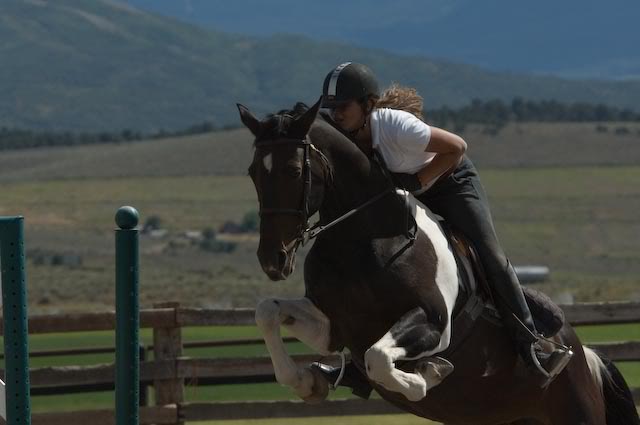Channing Seideman is a sixteen year old who lives in Aspen, rides horses, coaches freestyle skiing, and deals with epilepsy on a daily basis. Her condition is called Juvenile Myclonic Epilepsy, a condition she has had since age nine. Channing deals with seizures on a daily basis which might involve temporary loss of the ability to speak, myclonic twitches of the head, short uncontrolled gasps, or tonic clonic seizures in which she loses consciousness entirely. Channing has not had a tonic clonic seizure since October, 2008. For Channing, the scariest part of epilepsy is not knowing when seizures will occur and not knowing how severe they will be when they do. They can be very humiliating. After they are over, she deals with headaches and fatigue. Channing explained that her, “wishes and dreams went away” when she received the diagnosis of Juvenile Myclonic Epilepsy and learned that she would have it for the rest of her life. As soon as her wishes and dreams disappeared, however, Channing wasted no time in creating new wishes, dreams, ambitions, and plans that would safely accommodate epilepsy.
In an email to me about life with epilepsy, Channing explained that, “Seizures have taken away some of the things I wanted to do with my life… But when I write a list of things I can do vs things I cannot, the things I can do outweigh those I cannot by far.” On the list of things Channing can do, you will find things such as coaching a team of forty freestyle skiers between ages seven and eleven, playing tennis, and riding horses – with a goal of perhaps competing in the Olympics. After watching the Beijing Games, Channing was inspired to work harder to achieve her goal. Epilepsy has not changed that. She occasionally plays tennis, and can be found from time to time out hiking or riding bikes.
Although Channing deals with seizures on a daily basis, she has found safe ways to be active with help from family and doctors. One might wonder if this type of disorder would drive her to restrict her activities, although it seems that for Channing the case has been the opposite. Despite challenges, Channing’s seizures have driven her to a lifestyle that might be even more active than it would have been had she never been epileptic. She wrote in her email to Seize The World, “Whenever I play sports, that’s when people are most supportive and that’s when I’m the happiest.” She also explained that epilepsy has made her work harder in school after missing most of middle school. She went on to say that bad days – from a seizure point of view – can usually be improved by riding horses or by skiing. Both of these activities will often put an end to her seizures for the day. Channing benefits both mentally and physically from activity.

By contrast, she is at her lowest when she is in environments where she encounters people who do not understand, or who are not willing to learn about, her situation. This occurs most often at school. But what also occurs often is that she receives support from people who do understand her situation, and who care about it. About her parents, Channing explained that they, “…have supported me the most. They support me with my sports when my friends think it is too dangerous…” She also credits her epileptologist, friends, and coaches with providing support with being active and safe. Channing pointed out that Chanda Gunn played for the U.S. Womens’ Olympic Hockey team with epilepsy. Channing’s outlook seems to be that things can be accomplished if there is a will, and that there will be support to accomplish them regardless of whether or not epilepsy is involved.
Channing’s advice? “You only live once. There is always a way to work around epilepsy.”

